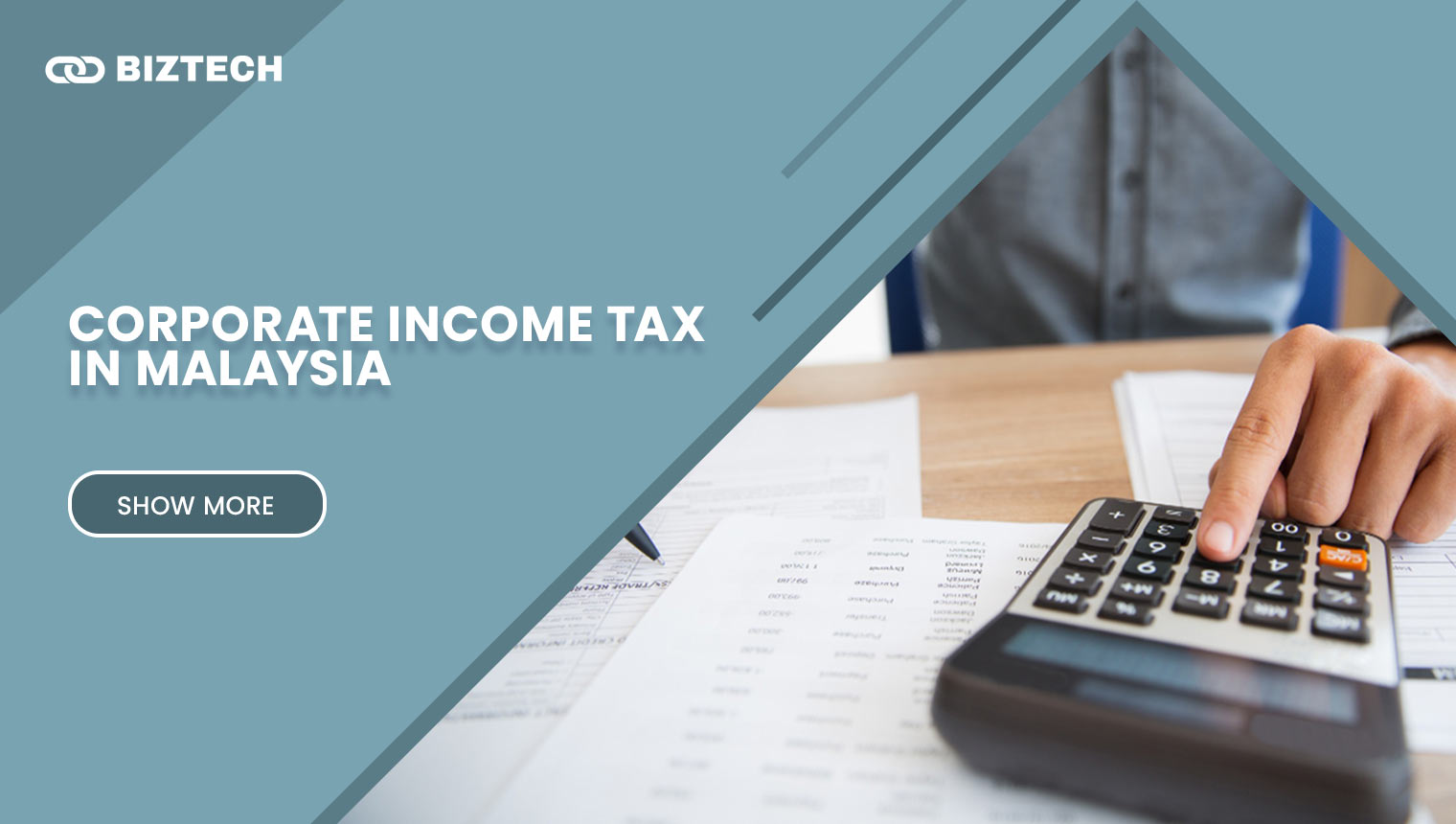What Is Corporate Income Tax?
Corporate income tax is a direct tax imposed on the profits of companies operating in Malaysia. It plays a crucial role in funding government services and infrastructure, making it essential for businesses to understand their tax obligations. Compliance with corporate tax regulations not only helps in avoiding penalties but also allows companies to leverage potential tax benefits effectively.
- What Is Corporate Income Tax?
- Why Understanding Corporate Tax Rates Matters
- Corporate Tax Rate in Malaysia
- Overview of Corporate Tax Rates for 2023
- Comparison of Tax Rates for SMEs and Larger Companies
- Recent Changes and Updates to the Company Tax Rate
- Scope of Corporate Income Tax in Malaysia
- Who Needs to Pay Corporate Tax?
- Basis Period for Corporate Tax Calculation
- Tax Deductible Expenses for Malaysian Companies
- Overview of Tax Deductible Expenses
- Common Tax Deductible Expenses
- Non-Deductible Expenses
- Corporate Tax Filing Requirements and Deadlines
- Form C and Form E Explained
- Key Filing Deadlines
- Tax Payment Options
- Tax Incentives and Exemptions for Companies
- Government Incentives for Businesses
- Industries Eligible for Tax Exemptions
- How to Calculate Corporate Income Tax in Malaysia
- Step-by-Step Guide to Calculating Taxable Income
- Example Calculation
- Compliance and Penalties for Late Corporate Tax Submission
- Penalties for Late Filing
- Tips to Ensure Compliance
- Conclusion: Stay Compliant and Save with Effective Tax Planning
Why Understanding Corporate Tax Rates Matters
Knowing the corporate tax rates is vital for businesses as it directly impacts their financial health. By understanding these rates, companies can strategize their operations to minimize tax liabilities while ensuring compliance with Malaysian tax laws.
Corporate Tax Rate in Malaysia
Overview of Corporate Tax Rates for 2023
In Malaysia, the corporate tax rate varies based on the type of company. Below is a summary of the corporate tax rates for resident and non-resident companies in 2023:
| Type of Company | Tax Rate |
| Resident company with paid-up capital ≤ RM 2.5 million and gross income ≤ RM 50 million | 17% on the first RM 600,000; 24% on excess |
| Resident company with paid-up capital > RM 2.5 million | 24% |
| Non-resident company | 24% |
Comparison of Tax Rates for SMEs and Larger Companies
Small and medium-sized enterprises (SMEs) benefit from reduced tax rates compared to larger corporations. SMEs enjoy a lower rate of 17% on their first RM 600,000 of chargeable income, while larger companies are taxed at the standard rate of 24%. This differentiation aims to support the growth of SMEs, which are vital to the Malaysian economy.
Recent Changes and Updates to the Company Tax Rate
Recent years have seen minimal changes in corporate tax rates, maintaining stability for businesses. However, ongoing discussions about potential adjustments reflect the government’s commitment to fostering a conducive business environment.
Scope of Corporate Income Tax in Malaysia
Who Needs to Pay Corporate Tax?
All companies deriving income from Malaysia are liable for corporate tax. This includes both resident companies (those incorporated in Malaysia) and non-resident companies (foreign entities operating within Malaysia).
Basis Period for Corporate Tax Calculation
The basis period for calculating corporate tax typically aligns with the company’s financial year. Companies must file their taxes based on their accounting period, ensuring that all income earned during this time is reported accurately.
Tax Deductible Expenses for Malaysian Companies
Overview of Tax Deductible Expenses
Tax deductible expenses are costs that can be subtracted from a company’s gross income to reduce taxable income. According to Section 33 of the Income Tax Act 1967, these expenses must be “wholly and exclusively incurred” in generating income.
Common Tax Deductible Expenses
Here are some common deductible expenses for Malaysian companies:
- Employee Salaries and EPF Contributions: Payments made to employees and contributions to the Employees Provident Fund
- Rental Expenses and Utilities: Costs associated with renting business premises and utility bills
- Business Travel and Entertainment: Expenses incurred during business-related travel and client entertainment
Non-Deductible Expenses
Certain expenses are not eligible for deductions, including:
- Personal or domestic expenses
- Fines and penalties
- Capital expenditures that do not directly relate to revenue generation
Corporate Tax Filing Requirements and Deadlines
Form C and Form E Explained
Companies must file Form C (corporate tax return) and Form E (employer return) annually. These forms provide essential information regarding income earned and taxes owed.
Key Filing Deadlines
It is crucial for companies to adhere to filing deadlines to avoid penalties. Generally, corporate tax returns must be submitted within seven months after the end of the financial year.
Tax Payment Options
Companies can pay their taxes through various methods, including electronic payments or bank transfers, ensuring convenience and efficiency.
Tax Incentives and Exemptions for Companies
Government Incentives for Businesses
The Malaysian government offers several incentives designed to encourage investment, such as:
- Pioneer Status: Provides up to ten years of tax holidays for qualifying businesses.
- Investment Tax Allowance: Allows companies to claim allowances on qualifying capital expenditures.
Industries Eligible for Tax Exemptions
Certain sectors like technology, manufacturing, and green energy benefit significantly from tax incentives aimed at promoting growth within these industries.
How to Calculate Corporate Income Tax in Malaysia
Step-by-Step Guide to Calculating Taxable Income
To calculate taxable income:
1. Determine gross income from all sources.
2. Subtract allowable deductible expenses.
3. Apply the relevant corporate tax rate based on the taxable income bracket.
Example Calculation
For instance, if a company has a gross income of RM 1 million with RM 400,000 in deductible expenses:
[su_note note_color=”#ffffff” text_color=”#000000″ radius=”10″]
Taxable Income: RM 1 million – RM 400,000 = RM 600,000.
The first RM 600,000 would be taxed at 17%, resulting in a total tax liability of approximately RM 102,000.
[/su_note]
Compliance and Penalties for Late Corporate Tax Submission
Penalties for Late Filing
Companies face significant penalties for failing to file their taxes on time or underreporting their income. These penalties can include fines or increased scrutiny from tax authorities.
Tips to Ensure Compliance
To avoid compliance issues:
- Maintain accurate financial records.
- Set reminders for filing deadlines.
- Consult with tax professionals when necessary.
Conclusion: Stay Compliant and Save with Effective Tax Planning
Understanding corporate tax rates and deductible expenses is essential for effective financial management in Malaysia. By staying informed about filing requirements and available incentives, companies can optimize their tax position while ensuring compliance.
We encourage businesses to consult with taxation experts or accounting firms to navigate Malaysia’s corporate tax landscape effectively. Maximizing deductions and understanding incentives can lead to significant savings.
Read also: Types of Business Licenses in Malaysia
Frequently Asked Questions (FAQs)
Disclaimer: This article provides general information about corporate taxation in Malaysia. For specific advice tailored to your business needs, please consult a qualified tax professional.






